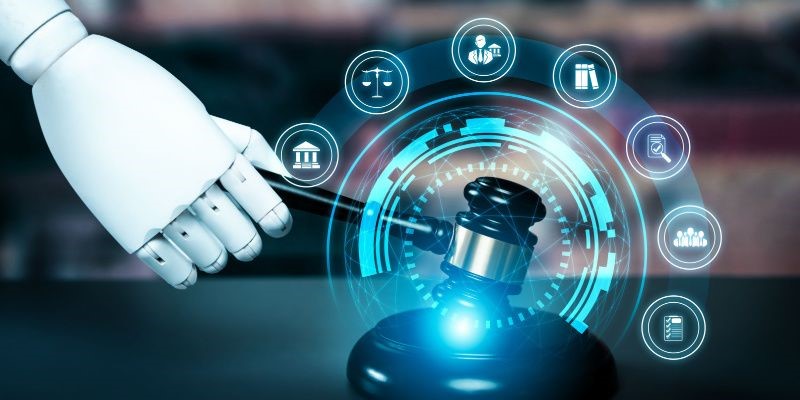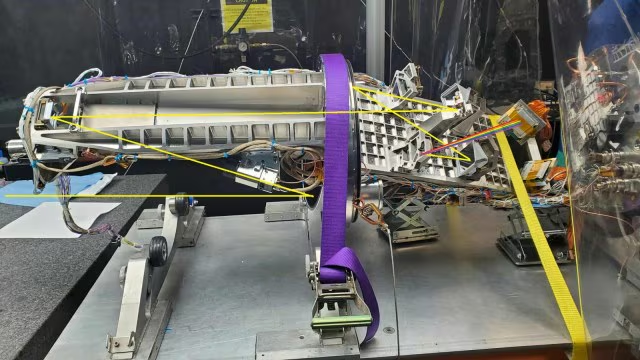Description

Disclaimer: Copyright infringement not intended.
Context
- Prime Minister Narendra Modi's recent appeal to expand "ethical" artificial intelligence (AI) tools carries significant implications, particularly in the context of the upcoming G20 Summit in New Delhi.
- This move not only positions India as a leader in shaping global AI and cryptocurrency regulations but also marks a substantial shift in India's own regulatory stance on AI.
Details
Shifting Regulatory Approach
- Just a few months ago, the Ministry of Electronics and IT stated that it wasn't considering any legal measures to regulate the AI sector.
- The current call for "ethical" AI expansion showcases a transformative shift, indicating India's intent to actively engage in AI regulation based on a risk-oriented and user-centric approach.
TRAI's Role and International Collaboration
- The Telecom Regulatory Authority of India (TRAI) released a consultation paper in July, suggesting the establishment of a domestic statutory authority for regulating AI within a risk-based framework.
- It advocates collaboration with international agencies and governments to form a global body for responsible AI use.
Global Leadership and G20 Summit
- PM Modi's call for "ethical" AI expansion is strategically timed before the G20 Summit.
- This indicates India's desire to lead discussions on AI regulations and drive global convergence.
Digital India Bill and Distinction among Intermediaries
- The Indian government is considering new regulations under the Digital India Bill, replacing the Information Technology Act, 2000.
- The bill aims to categorize different online intermediaries, including AI-based platforms, and propose tailored regulations for each category.
Industry Involvement and Microsoft's Blueprint
- Tech giant Microsoft released a comprehensive blueprint titled "Governing AI: A Blueprint for India."
- The blueprint suggests safety and security regulations, along with deployment guidelines, emphasizing collaboration with the Indian context.
Varied Policymaker Responses and Global Trends
- Policymakers worldwide are intensifying regulatory oversight of generative AI tools, prompted by recent developments.
- The responses vary from stricter control (European Union), innovation support (United Kingdom), and evolving frameworks (United States and China).
Tech Leaders' Cautions
- Prominent tech leaders such as Elon Musk and Steve Wozniak have called for cautious AI development due to potential risks.
- They propose shared safety protocols and cooperation among labs and experts to manage AI advancements responsibly.

Background
The debate surrounding the regulation of artificial intelligence (AI) is multifaceted, with varying viewpoints on the extent of control required. While some advocate comprehensive regulation, others suggest partial regulation. The discussion revolves around balancing AI's potential benefits with potential risks and uncertainties.
The question of AI regulation stems from its increasing prominence and potential implications. AI's applications, from prediction to language generation, raise concerns about biases, fairness, and control. The diverse opinions on AI control underscore the complexity of the issue.
Debate Initiation
- The Centre for AI Safety's statement about existential threats posed by AI has ignited the conversation.
- Over 350 AI experts signed the statement, including top leaders from OpenAI and Google DeepMind.
- The growing apprehension regarding AI's potential dangers is a catalyst for the debate.
Regulation Advocates
- Sam Altman's Perspective: CEO of OpenAI, Sam Altman, emphasizes the need for governmental intervention to mitigate the risks associated with powerful AI systems. He suggests establishing a regulatory body with the authority to license, de-license, and ensure safety standards compliance.
- Yuval Noah Harari’s Concerns: Noted philosopher Yuval Noah Harari contends that AI could “hack” human civilization’s operating system, affecting culture, language, and democracy. He warns of AI’s potential to manipulate human opinions and behavior.
AI's Impact and Potential
- World Economic Forum's Insights: The World Economic Forum underscores AI's predictive capacity, while noting that equating it with human intelligence is a mistake. AI's potential for positive contributions, such as forest fire prediction and personalized healthcare, is highlighted.
- AI's Limitations and Risks: Despite advancements, AI often makes errors and hallucinates due to biased data. The risk of biased outcomes, such as Apple's credit card algorithm discriminating against women, raises concerns about regulation.
Challenges in Regulation
- Defining AI Legally: Legal scholars point out the difficulty of regulating rapidly evolving AI technology due to the lack of a clear legal definition.
- Soft Law Approaches: Soft-law regulation, adaptable to AI's evolution, gains traction. Soft laws' effectiveness, although criticized for limited enforcement, align well with emerging technologies.
Experts' Perspectives
- Pause on AI Development: The Future of Life Institute's statement, signed by prominent figures, calls for a six-month halt in neural language model creation to establish governance protocols.
- Cason Schmit's Analysis: Assistant Professor Cason Schmit highlights the need to define AI legally and comprehensively assess its benefits and risks for effective regulation.
Need for AI Regulation
- Uncertainty in Risks: The rise of AI brings amplified risks and uncertainties due to its increasing capabilities, from music recommendation to cancer detection.
- Black Box Complexity: Some AI tools are like "black boxes," defying understanding of their inner workings and decision-making processes.
- Inaccuracy and Biases: AI-driven mistakes, like wrongful arrests due to Facial Recognition Software, biases in AI systems, and copyright issues with advanced language models, highlight regulatory gaps.
- Unpredictable Behavior: Unlike traditional systems, AI's behavior in novel situations is unpredictable, demanding a unique regulatory approach.
Global AI Governance
India
- NITI Aayog's National Strategy for Artificial Intelligence focuses on social inclusion, innovation, and trustworthiness.
- "Responsible AI for All" report underscores inclusivity, ethics, and innovation.
United Kingdom
- Advocates a light-touch approach, adapting existing regulations to AI applications.
- Stipulates five principles: safety, transparency, fairness, accountability, and redress.
United States
- Proposes an AI Bill of Rights, targeting economic and civil rights protection.
- Advocates sector-specific governance to address harms, focusing on areas like health, labor, and education.
China
- Pioneers binding regulations for specific algorithms and AI applications.
- Enforces laws on recommendation algorithms, particularly their information dissemination.
The Way Forward
- Defining Regulatory Framework: Establish a comprehensive regulatory framework defining AI capabilities and potential misuses.
- Prioritizing Data Protection: Ensure data privacy, integrity, and security while enabling businesses to access data.
- Mandatory Explainability: Enforce explainability to eliminate black-box AI, promoting transparency and understanding.
- Balancing Scope and Vocabulary: Regulators must balance regulation scope and accessible language.
- Stakeholder Engagement: Involve industry experts and businesses in policy formulation for effective and balanced regulations.
.jpg)
Conclusion
PM Modi's call for "ethical" AI expansion marks a pivotal moment in India's regulatory landscape. The nation's shift from non-interference to proactive regulation demonstrates a keen understanding of AI's transformative potential and the need to navigate its challenges collectively on the global stage.
|
PRACTICE QUESTION
Q. The debate over AI regulation is marked by diverse viewpoints, ranging from comprehensive control advocates to cautious regulators. The complex nature of AI's impact, potential risks, and the evolving landscape of technology present challenges in devising effective regulatory measures. Balancing innovation with accountability remains a central concern in shaping the AI regulatory framework. Critically analyse. (250 Words)
|
https://indianexpress.com/article/explained/explained-sci-tech/delhi-seeks-to-help-frame-discourse-on-ai-regulation-8912254/











